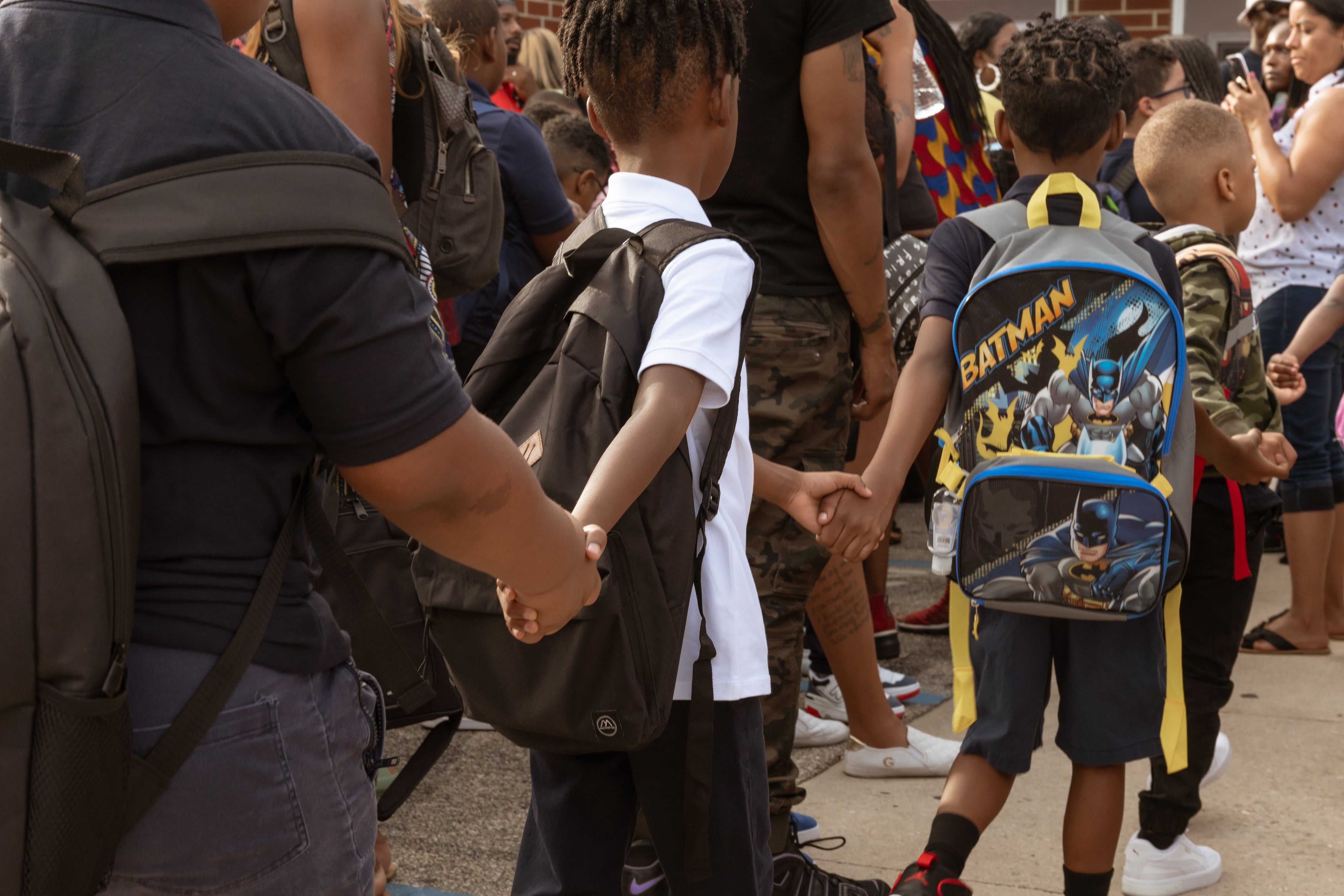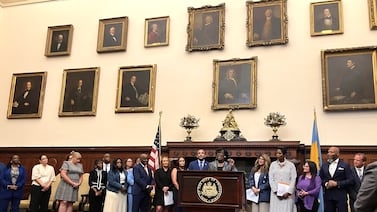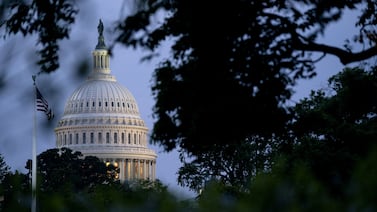A Philadelphia group wants schools to focus more on being places of joy as a way to overhaul the culture in district schools, and it’s relying on parents and community voices for help.
Lift Every Voice, the organization behind this year’s Joy Campaign, is backing the creation of a “joy-based budget” for schools to bolster access to recess, the arts, counselors, and the district’s program to bolster student mental health known as the Support Team for Educational Partnership. The blueprint would also create a Chief of Joy position in the district; in June, the City Council adopted a resolution exploring the creation of this position in Philly schools. The group says this approach to budgeting and community input is crucial for reducing things like disparities in student discipline.
The district has its own federally funded restorative justice program called Relationships First that focuses on student empowerment and engagement. But Lift Every Voice wants its work to be broader by auditing whether collective punishments like enforced quiet times and limited recess in schools contribute to inequities and an anti-Black environment. Parent surveys conducted by Lift Every Voice from earlier this year show that student mental health and school climate and environments are still major concerns that the district must address, the group says.
Ultimately, it envisions schools “as places our kids want to be.”
“The school system is a closed system that doesn’t want to be told what to do and we’re starting to force them to come to grips with our voice that’s not going away,” said Wes Lathrop, Lift Every Voice’s organizing director.
Councilmember Kendra Brooks, who co-sponsored the June resolution, sees the campaign as a way to help schools embrace cultural differences, and as a way to to reduce disparities and biases, including those held by adults.
“We have to find a way to embrace the model and make it part of the normal cultural norms,” Brooks said. “A project we’re taking on has to be embedded. The only way we do that is consistency and sustainability, and oftentimes we haven’t seen that.”
Lathrop sees community involvement in restorative justice as a two-way street, pointing to the importance for all citizens of having students who are well-prepared for the job market and post-graduation life: “Parents can be a real guiding powerful force to really shape the future of the district.”
Susan McLeod, a Philadelphia public schools parent, got involved with Lift Every Voice because of issues her child was facing. She feels crucial decisions are made in the district without any parent involvement, such as announcements of district school closures more than 10 years ago that took her completely off guard. The group has helped her feel empowered on her own and her child’s behalf.
“It’s important for us to lay this foundation for our kids to have a better learning experience as young as elementary school,” McLeod said.
Racial disparities in student discipline represent one particular concern. The district has adopted practices rooted in restorative justice, an approach to discipline that emphasizes conflict mediation between students and other forms of resolving conflicts as alternatives to student suspensions and expulsions.
Overall suspensions have declined in Philadelphia public schools recently: The percentage of students with at least one suspension in a school year has dropped from about 11.5% in 2013 to about 5.7% in 2023. But over that same period, Black and Hispanic students were suspended at higher rates relative to their total enrollment than white students, according to data from the District Performance Office.
The district’s Relationships First initiative started in 2019 and expanded in 2023 to include more schools. It’s focused on developing students as leaders in restorative justice efforts and trains teachers to guide students in that work.
“Folks have the opportunity to engage in restorative conversations … and to be able to provide alternatives to suspension across the entire district,” said Luis Rosario, assistant director of school climate and culture for the district. “I do think it’s a testament to the leadership of our school district to move in that direction.”
These efforts dovetail with another led by Healing Futures. Healing Futures is operated by the nonprofit Youth Art & Self-Empowerment Project that receives case referrals from the Philadelphia District Attorney’s office in place of a legal charge. In programs that last a minimum of eight weeks with mentor participation, students attend weekly discussions about their values and community and how to take accountability for the harm created by the student’s actions.
“We want to make sure that as many different perspectives of a situation can come into the room and offer their insight and support collectively,” said Hanae Mason, who is shadowing Healing Futures as part of her work as a Stoneleigh Fellow to improve systems serving youth.
Building students’ agency and perspective can take different forms and lead to various outcomes.
Mary Libby, former principal at what’s now the Marian Anderson Neighborhood Academy, worked to introduce restorative justice practices and noticed students taking on more responsibility after formal restorative sessions. Students led the push when the school decided last year to rename itself in honor of singer and local civil rights activist Marian Anderson, Libby said.
“In order for us to collectively move forward in a restorative and inclusive way, we need to trust and let the kids lead that process,” Libby said.
Malachi Grogan, an incoming seventh grader at Anderson who helped lead efforts to change the school’s name, is proud of the trust he has created with his peers where he can now lead restorative or cooling conversations.
“If we talk about it then we can get to know how people are feeling,” Grogan said. “And if we don’t know how people are feeling, how are we supposed to help them?”
Correction, Aug. 8, 2024: This article has been updated to clarify that Healing Futures is not led by the district attorney’s office, but is part of the nonprofit Youth Art & Self-Empowerment Project. It receives case referrals from the district attorney’s office but is not part of city government.








